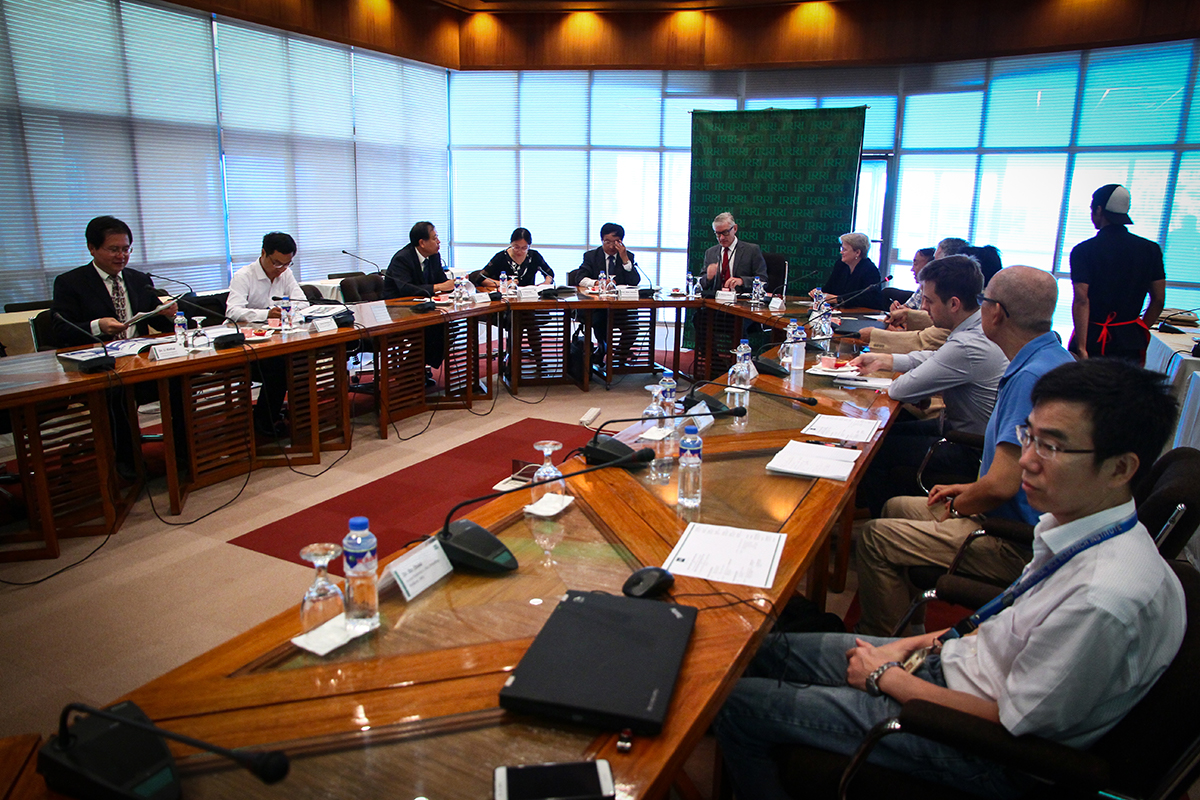
ENGAGE WITH GLOBAL ACTORS TO INFORM POLICIES AND ESTABLISH STANDARDS AND BENCHMARKS THAT TRANSFORM HOW FOOD IS CULTIVATED, PRODUCED, AND MARKETED IN RICE-BASED AGRI-FOOD SYSTEMS
Technological and scientific discoveries are providing new ways to better understand the impact of growing food and changing the way the world produces rice. IRRI combines its world-leading expertise in rice research with the distinctive strengths of its partners to make the discoveries that help improve the well-being of subsistence farmers while protecting the environment. In 2018, the institute’s innovative partnerships and collaborations have created new scenarios for a cleaner, healthier, and flourishing rice sector that serves as the cornerstone for ending poverty and hunger.
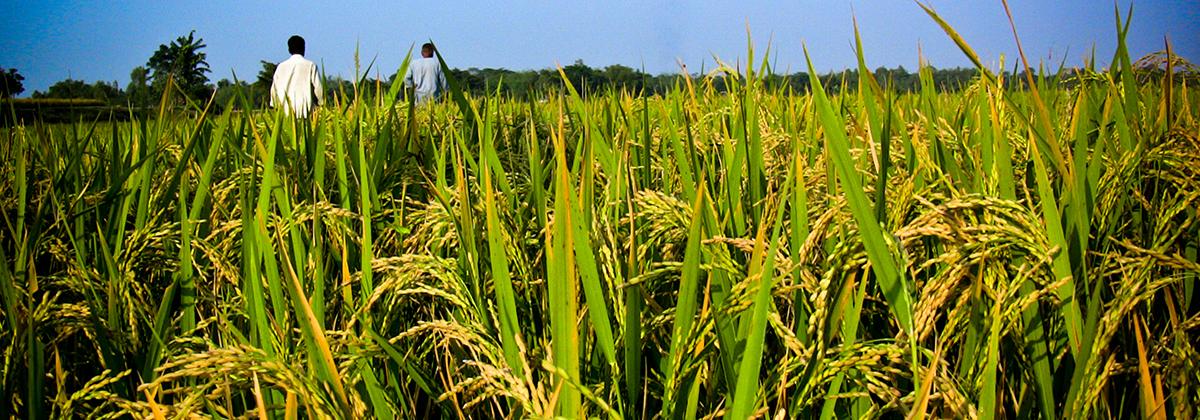
Creating a deep and lasting impact on South Asia and Africa's rice productivity
Stress-Tolerant Rice for Africa and South Asia (STRASA) is a 10-year project established by IRRI and AfricaRice in 2008. Its goal is to reduce poverty of at least 18 million farmers and stabilize rice production in drought- and flood-plagued and poor-soiled rainfed ecosystems in South Asia and Africa through the use of modern technology. In 2018, about 160 delegates from South Asia, Africa, Philippines, and the USA convened for the project’s 11th annual meeting to assess its successes, challenges, and milestones and set directions until its completion at the end of March 2019.
In its first three-year phase, major progress was made on developing improved germplasm, developing participatory evaluation networks, seed production and release of stress-tolerant varieties, targeting of stress-tolerant varieties for large-scale delivery, impact analysis, and strengthening capacity. In Phase 2, seed and information dissemination was considerably scaled up while breeding work focused on taking advantage of the progress made in identifying genes conferring tolerance for the major environmental stresses.
To date, STRASA, which is funded by BMGF, produced about 230,000 tons of seeds and distributed these to nearly 8 million farmers in India, Nepal, and Bangladesh. STRASA also disseminated more than 200 rice varieties in over 18 countries in sub-Saharan Africa.
“We consider STRASA to be the most successful project in recent times, paving the way for a second Green Revolution in Eastern India,” said Dr. S. K. Pattanayak, secretary of the Department of Agriculture, Cooperation, and Farmers Welfare of India. “The country is going to reach 111 million tons of rice this year, and for this, credit should go to this project.”
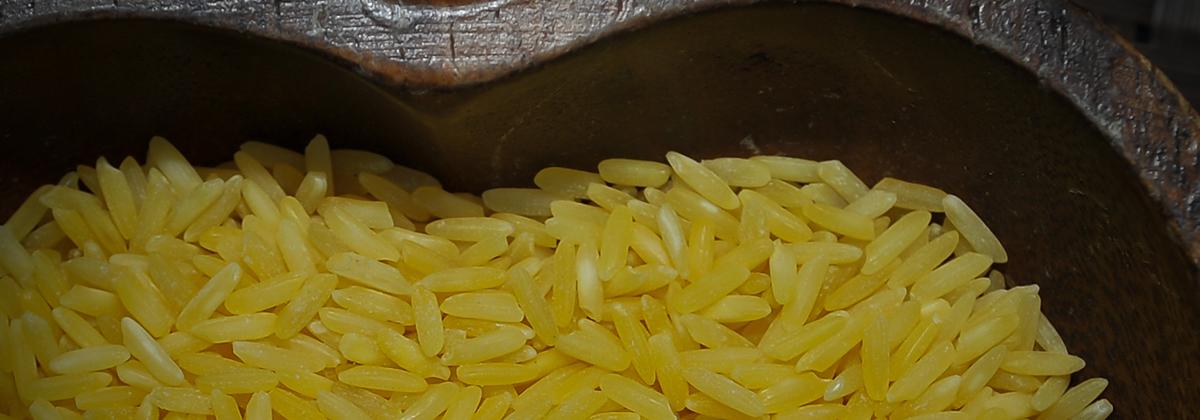
Meeting global food safety standards
Golden Rice, a provitamin-A biofortified rice variety, completed its third positive food safety evaluation from the United States Food and Drug Administration (US FDA). The US FDA statement comes on the heels of the safety and nutrition approvals from Food Standards Australia New Zealand, and Health Canada making Golden Rice the first nutritionally enhanced genetically modified rice to receive regulatory approval for use in food.
“Each regulatory application that Golden Rice completes with national regulatory agencies takes us one step closer to bringing Golden Rice to the people who need it the most,” said IRRI Director General Matthew Morell. “The rigorous safety standards observed by the US FDA and other agencies provide a model for decision-making in all countries wishing to reap the benefits of Golden Rice.”
In a related development, the Minister of Agriculture for Bangladesh, Matia Chowdhury acknowledged the positive impact of biotech crops and their potential to help Bangladesh meet Zero Hunger by 2030.
“Bangladesh will march forward on Golden Rice,” said H.E. Chowdhury. “Inspired by the success of the country’s first commercially released biotech crop in 2013, Bangladesh is now field testing three more crops developed through applications of biotechnology, including Golden Rice. The government has every intention to support genetically modified crop cultivation in the future.”
Golden Rice is intended as a complementary, food-based solution to existing nutritional interventions, such as diet diversification and oral supplementation. It achieves this by providing 30-50% of the estimated average requirement for Vitamin A of women and children.
IRRI is working with national research partners in the development and deployment of healthier rice varieties that have more iron, zinc, and beta-carotene content to improve the nutritional status of vulnerable populations with limited access to diverse diets. Because rice is already widely grown and eaten, these bio-fortified rice varieties have the potential to reach many people.
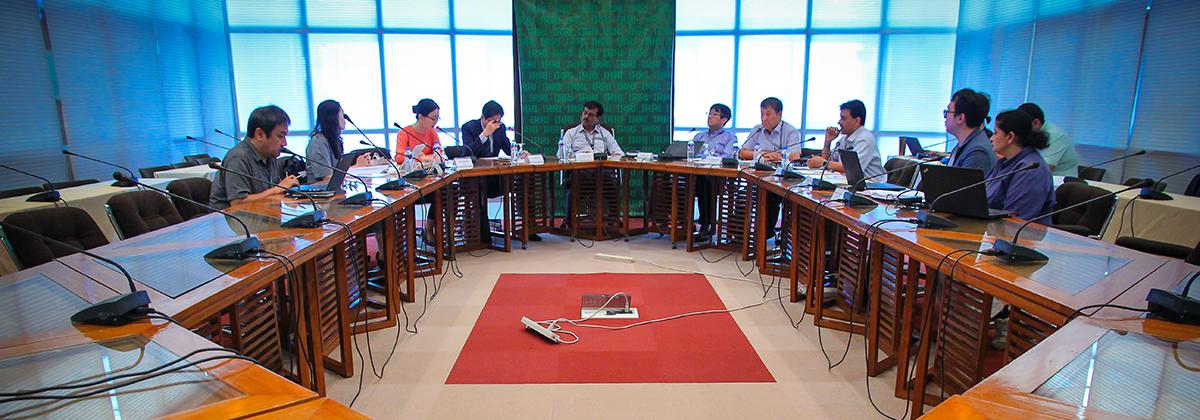
Reinforce rice research partnerships to benefit smallholder farmers around the world
IRRI is working closely with the Rural Development Administration (RDA) in South Korea in advancing rice research to help more rice-growing countries. The IRRI-RDA collaboration will evaluate current projects and plan future initiatives on delivering impactful rice research.
“Through our partnership with IRRI, South Korea has revolutionized rice production and RDA came to have world-class rice breeding technology,” said RDA Director Jeom-Ho Lee. That 50-year partnership has led to solutions tailored to South Korea’s local needs such as the development of premium quality rice varieties (Gopumbyeo and Unkwangbyeo) and high-quality and high-yielding temperate japonica rice varieties that helped transform the country from a rice importer to a self-sufficient producer and exporter of rice. It also launched the Rice Technology Transfer System Workshops which has benefited around 130 practitioners from over 17 countries in Asia.
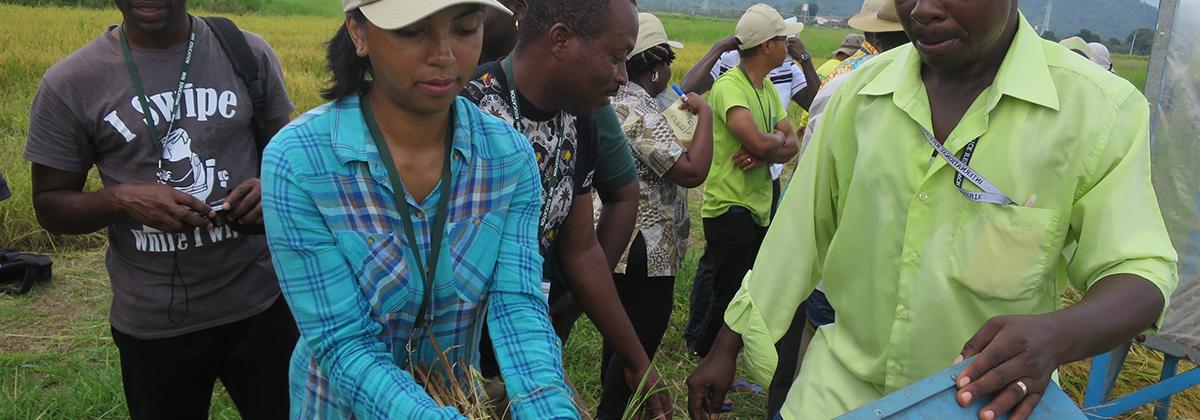
Driving agricultural development across Africa
AfricaRice and IRRI have agreed to a step-change in their partnership to accelerate delivery on the rapidly growing needs of the African rice sector. The two CGIAR Centers will offer a comprehensive, pan-African, multi-focus program of research for development services aligned with national priorities.
The key areas of change will include more foresighting and capacity development services, addressing gender and youth opportunities, contributing to nutrition and health needs, providing evidence-based policy research, developing climate-resilient rice varieties, and assuring high-performance production systems and value chains to better link smallholder farmers to markets.
“Such a shift in our approach to the African rice sector will help achieve greater and more rapid impact across the value chain and facilitate stronger support and recognition of our joint efforts by our stakeholders,” said Harold Roy-Macauley, director general of AfricaRice.
In endorsing the new approach, IRRI Director General Matthew Morell said, “IRRI and AfricaRice are committed to harnessing our collective capacity to address the rice self-sufficiency needs of Africa and achieve it in an economically and socially sustainable manner.”
Global collaborations for sustainable development
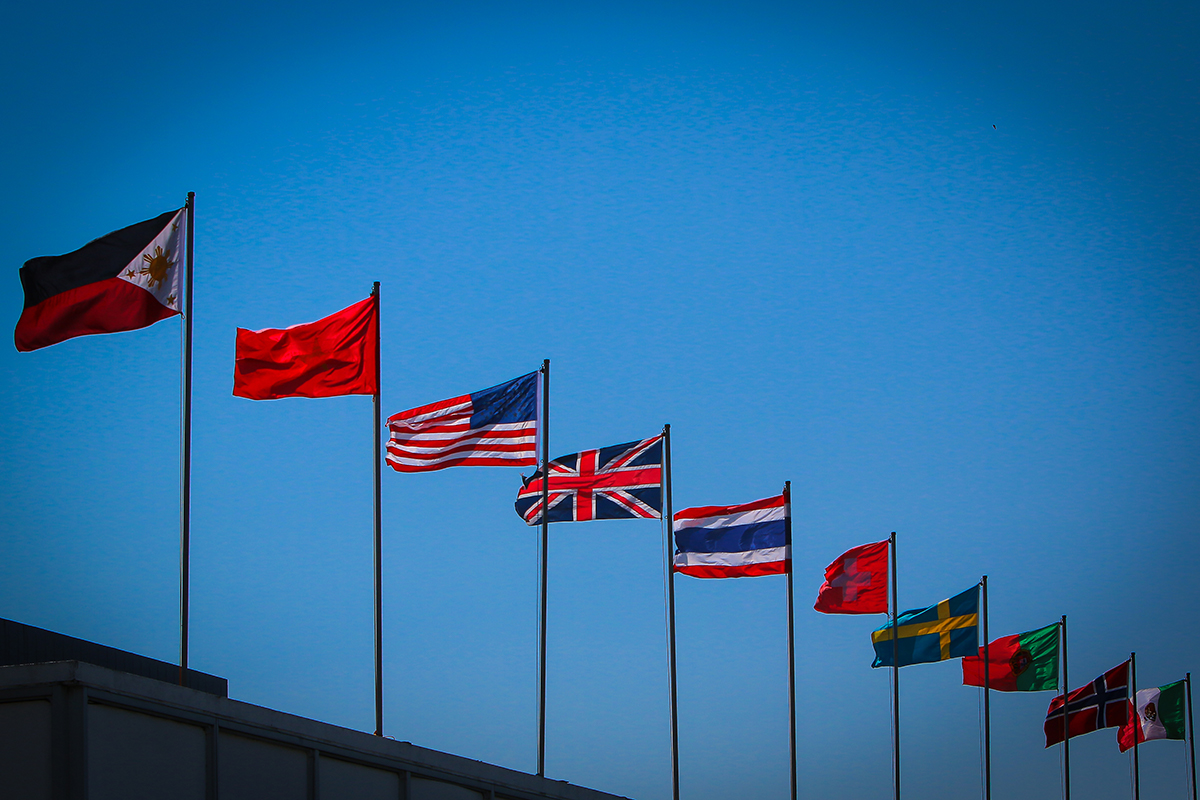
Investing in research-for-development to boost Bangladesh agri-food sector
The importance of investing in research for development in the rice-based agri-food systems was highlighted at the Mobilizing Resource for Research for Development in Rice-based Agri-food System to Achieve SDGs in Bangladesh, a consultative meeting organized by IRRI and the Bangladesh Ministry of Finance and Planning, Economic Relations Divisions.
“This is a significant milestone in galvanizing efforts to deliver Zero Hunger and No Poverty in Bangladesh,” said Dr. Nafees Meah, IRRI representative for South Asia. “Zero Hunger and No Poverty in Bangladesh can be achieved through the transformation of the agriculture sector. Increasing investment in research for development on the rice-based agri-food system is a must, given the challenges facing the country. The payback would be immense.”
Increasing farmers' income through postharvest upgrading
IRRI joined fellow global experts at the13th International Rice Conference for Latin America and the Caribbean to share solutions and approaches to sustainable rice production through recent developments in postharvest technologies and learning alliances. Alliances were also formed to create a platform for various rice value chain stakeholders, where participants may exchange market information. Through these alliances, farmers are able to form linkages and gain timely information on current demand and prices.
Paving the way for sustainable rice production in Asian countries
IRRI, in collaboration with its national partners, is implementing innovative pathways to alleviate poverty and promote gender equity by optimizing productivity and environmental sustainability of irrigated rice production systems. Funded by the Swiss Agency for Development and Cooperation, The Closing Rice Yield Gaps in Asia with Reduced Environmental Footprint (CORIGAP-PRO) project brought together national partners from eight countries during its annual meeting to discuss key outcomes and plan activities for the next year.
Planned activities include: (1) expansion of outreach and documentation of stories of change; (2) testing and documenting increased environmental sustainability by using the Sustainable Rice Platform indicators; (3) linking farmers group to premium markets; (4) inform policy advisors on key outcomes of the project; and (5) strengthening capacity of national partners.
Reinvigorating Nepal's rice self-sufficiency efforts
Nepal’s Ministry of Agriculture, Land Management, and Cooperatives and IRRI signed a 5-year collaborative work plan to reinvigorate Nepal’s rice sector and help achieve food and nutrition security. It outlines projects specifically designed to increase grain yield, build technical skills and capabilities, and promote a more market-driven seed system for climate change-resilient rice varieties as a means to reduce Nepal’s rice imports.

